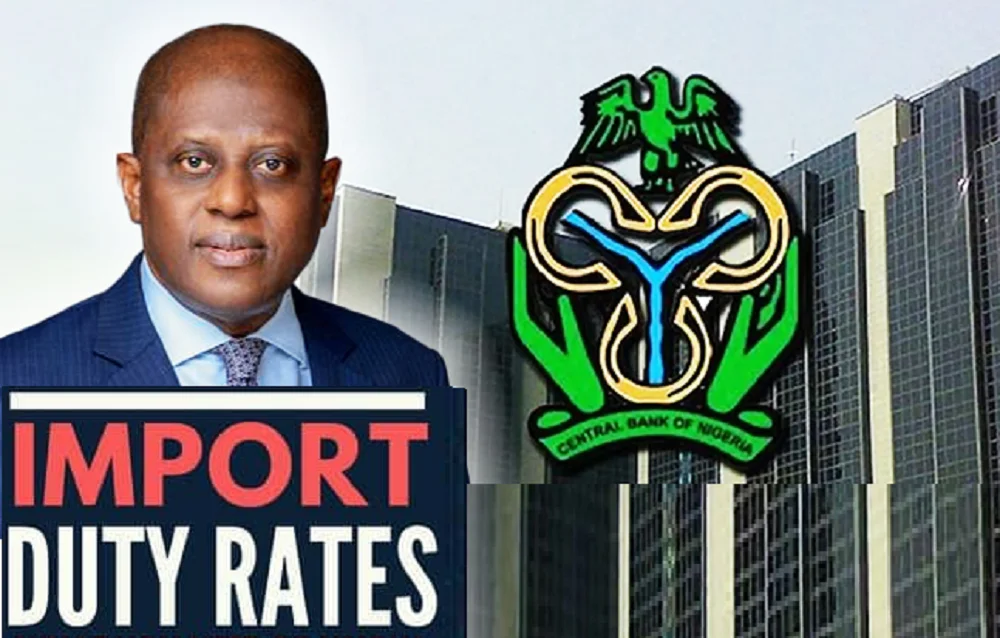In response to the ongoing fluctuations in the currency market, the Central Bank of Nigeria (CBN) has adjusted the exchange rate used for calculating import duties at the nation’s seaports.
The new rate, set at N1,457.014/$, marks a notable increase from the previous rate of N1,414.599/$.
Join our WhatsApp Channel“This adjustment reflects the current economic realities and aims to ensure stability within our import-export ecosystem,” stated a spokesperson from the CBN.
The revised Customs FX duty rate, amounting to approximately a 3 percent increment per dollar required for cargo clearance, has stirred mixed reactions among stakeholders.
“This move complicates matters for importers, adding strain to an already challenging business environment,” remarked Jonathan Nicole, former president of the Shippers Association of Lagos State. “It’s like moving the goalposts midway through the game.”
READ ALSO: Tinubu Orders CBN To Suspend Cybersecurity Levy Policy
Indeed, importers who initiated Form M applications before the adjustment now find themselves at a disadvantage compared to those who did so earlier, facing higher costs for clearing their goods.
The depreciation of the naira against the dollar has been a cause for concern, with the parallel market witnessing a significant decline in the value of the local currency. On Monday, the naira traded at N1,515 per dollar, indicating a 2.97 percent depreciation compared to the previous week’s rate of N1,470.
Market analysts anticipate further pressure on the naira in the coming days unless decisive measures are taken to stabilize the currency.
“The consistent tweaking of import duty rates only adds to the uncertainty for businesses,” noted Nicole. “In more stable economies, such fluctuations are less common, providing businesses with a predictable environment for planning and investment.”
The CBN has yet to announce additional measures to address the currency’s depreciation, leaving many stakeholders anxiously awaiting further developments.
As the economic landscape continues to evolve, the CBN’s actions will be closely scrutinized for their impact on businesses and the broader economy.
Emmanuel Ochayi is a journalist. He is a graduate of the University of Lagos, School of first choice and the nations pride. Emmanuel is keen on exploring writing angles in different areas, including Business, climate change, politics, Education, and others.



















Follow Us